Discover the Women of the Hall
These are the Inductees of the National Women’s Hall of Fame. Select any of the women to discover their stories and learn how they have influenced other women and this country.
 Amelia Earhart
Science
1897
Kansas
1973
Amelia Earhart
Science
1897
Kansas
1973

Amelia Earhart
The first woman to fly across the Atlantic Ocean, and the first to fly solo across the Pacific Ocean. Earhart was a strong individual who inspired other women to take risks in non-traditional arenas.
 Elizabeth Cady Stanton
Humanities
1815
New York
1973
Elizabeth Cady Stanton
Humanities
1815
New York
1973

Elizabeth Cady Stanton
Suffragist and reformer. Stanton noticed from her earliest years that women were not treated equally with men. In 1848, she and others convened the first Women’s Rights Convention in Seneca Falls, New York, bringing 300 individuals together, including Frederick Douglass. Stanton determined that the right to vote was the key to women’s equality. Throughout her life and partnership with Susan B. Anthony, she wrote and argued brilliantly for women’s equality through the right to vote.
 Eleanor Roosevelt
Humanities
1884
1973
Eleanor Roosevelt
Humanities
1884
1973

Eleanor Roosevelt
Trailblazing First Lady and wife of President Franklin Roosevelt. She spent her adult years working in politics and social reform. Her warmth and compassion inspired the nation, and she later became U.S. Delegate to the United Nations. The U.N. Declaration of Human Rights was largely her work, and she chaired the first-ever Presidential Commission on the Status of Women (1961).
 Rachel Carson
Science
1907
Pennsylvania
1973
Rachel Carson
Science
1907
Pennsylvania
1973

Rachel Carson
Zoologist whose concern over the damaging effects of pesticides and other poisons on the environment led to her groundbreaking work, Silent Spring. Carson’s book was a catalyst for the environmental movement of today.
 Susan B. Anthony
Humanities
1820
Massachusetts
1973
Susan B. Anthony
Humanities
1820
Massachusetts
1973

Susan B. Anthony
The women’s movement’s most powerful organizer whose lifetime of dedication, and work with Elizabeth Cady Stanton, paved the way for women’s right to vote. Her words “Men their rights and nothing more; women their rights and nothing less,” expressed the ongoing struggle for equality.
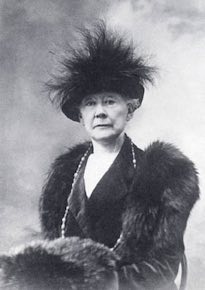 Mary Cassatt
Arts
1844
Pennsylvania
1973
Mary Cassatt
Arts
1844
Pennsylvania
1973

Mary Cassatt
American impressionist painter who captured the soul of family life, women, children, interiors and gardens. A friend and student of the great Impressionists of Paris, Cassatt powerfully influenced American art.
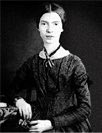 Emily Dickinson
Arts
1830
Massachusetts
1973
Emily Dickinson
Arts
1830
Massachusetts
1973

Emily Dickinson
One of the world’s greatest poets. A New England woman who spent much of her life in one small community, her world vision and innovative style has had a lasting impact on literature.
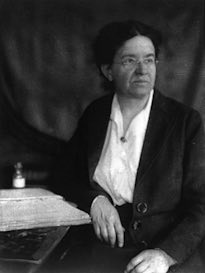 Florence Sabin
Science
1871
Colorado
1973
Florence Sabin
Science
1871
Colorado
1973

Florence Sabin
First woman graduate of the Johns Hopkins School of Medicine and the first woman to teach there. A talented anatomist and researcher, Sabin performed pioneering work in embryology, the lymphatic system and tuberculosis.
 Helen Keller
Education
1880
Alabama
1973
Helen Keller
Education
1880
Alabama
1973

Helen Keller
Author and lecturer. An illness at the age of 19 months left her deaf, blind and mute. Through the work of teacher Anne Sullivan, she learned to overcome these daunting handicaps and became a powerful and effective national spokesperson on behalf of others with similar disabilities.
 Jane Addams
Humanities
1860
Illinois
1973
Jane Addams
Humanities
1860
Illinois
1973

Jane Addams
Social reformer and peace activist who created Hull House in the slums of Chicago, starting an American settlement house movement to provide help for the poor. A lifelong activist, Addams fought child labor, infant mortality and dangerous workplaces. Founder of the Women’s International League for Peace and Freedom, she won the Nobel Prize for Peace in 1931.
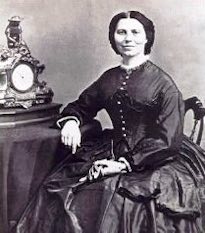 Clara Barton
Science
1821
Massachusetts
1973
Clara Barton
Science
1821
Massachusetts
1973

Clara Barton
Founder of the American Red Cross, Barton ministered to injured soldiers during the Civil War and became known as the “Angel of the Battlefield.” Devoted to the organization, she later took to the field, providing relief in the Spanish American War at the age of 77.
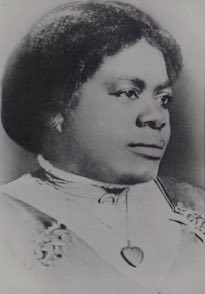 Mary McLeod Bethune
Education
1875
South Carolina
1973
Mary McLeod Bethune
Education
1875
South Carolina
1973

Mary McLeod Bethune
African American teacher who, with only $1.50, began a school to help educate young African American women. After developing it into a college, she became a powerful leader, and through her leadership of the National Council of Negro Women, worked to end discrimination and increase opportunities for African Americans.
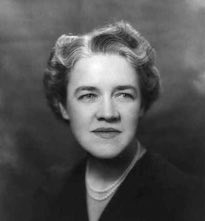 Margaret Chase Smith
Government
1897
Maine
1973
Margaret Chase Smith
Government
1897
Maine
1973

Margaret Chase Smith
Beginning her political career by assuming her deceased husband’s seat in the U.S. House of Representatives, she ran for and became a U.S. Senator from Maine. Margaret Chase Smith served four terms and was an advocate for a strong national defense.
 Pearl S. Buck
Arts
1892
West Virginia
1973
Pearl S. Buck
Arts
1892
West Virginia
1973

Pearl S. Buck
Novelist whose writing evoked two different cultures, American and Asian. Buck won the Pulitzer Prize for The Good Earth and was later the first American woman awarded the Nobel Prize in Literature for her body of work.
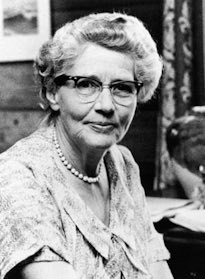 Helen Brooke Taussig
Science
1898
Massachusetts
1973
Helen Brooke Taussig
Science
1898
Massachusetts
1973

Helen Brooke Taussig
As Chief of the heart clinic at Johns Hopkins School of Medicine, she developed a pioneering operation in 1944 which solved the often fatal “blue baby” (children born with an anatomical heart defect) problem, saving countless infants.
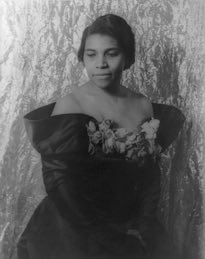 Marian Anderson
Arts
1897
Pennsylvania
1973
Marian Anderson
Arts
1897
Pennsylvania
1973

Marian Anderson
First African American singer to perform with the Metropolitan Opera. An international star, Anderson was a brilliant musician whose talents helped shatter the color barrier for other African American performers.
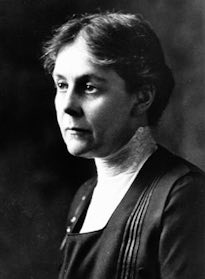 Alice Hamilton
Science
1869
Indiana
1973
Alice Hamilton
Science
1869
Indiana
1973

Alice Hamilton
Physician pathologist who specialized in industrial diseases. Hamilton helped save workers’ lives by forcing reforms in the workplace and protection from dangers such as lead poisoning.
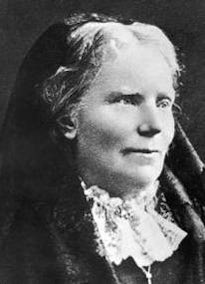 Elizabeth Blackwell
Science
1821
England
1973
Elizabeth Blackwell
Science
1821
England
1973

Elizabeth Blackwell
First American woman awarded an M.D. Blackwell founded the New York Infirmary for Women and Children and the Women’s Medical College, after having been banned from hospitals in New York. She paved the way for women in medicine.
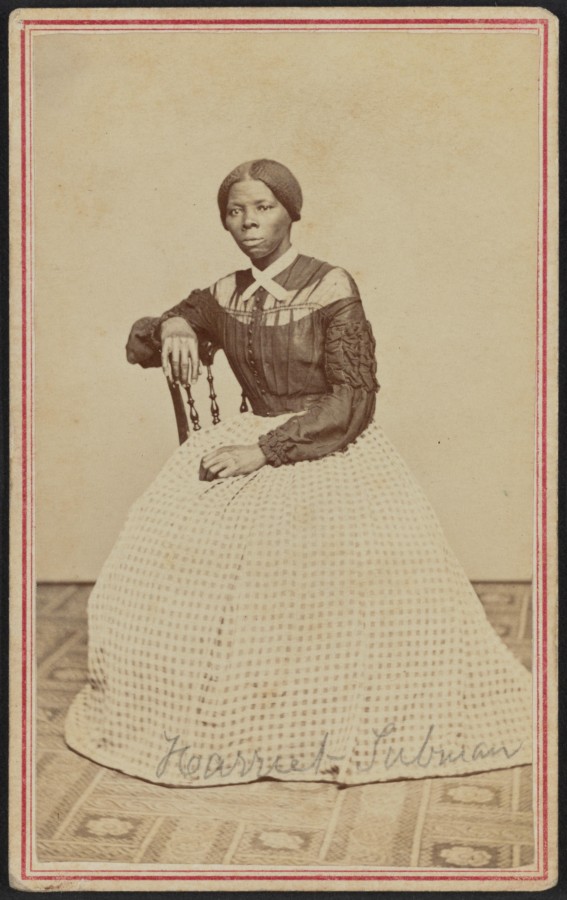 Harriet Tubman
Humanities
c.1820
Maryland
1973
Harriet Tubman
Humanities
c.1820
Maryland
1973

Harriet Tubman
Abolitionist born a slave in Maryland. Fleeing north to freedom, Tubman joined the Underground Railroad as a “conductor” who led people through the lines to freedom. Credited with saving more that 300 people from slavery, she became known as “Moses.” During the Civil War, Tubman organized former slaves into scouts and spy patrols, and after the war worked to help needy African Americans.
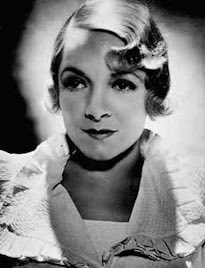 Helen Hayes
Arts
1900
1973
Helen Hayes
Arts
1900
1973

Helen Hayes
A major actress in all entertainment areas, from live theater to films and radio. In 1955, New York’s Fulton Theatre was renamed in her honor to commemorate a distinguished 50-year career.
 Margaret Mead
Science
1901
1976
Margaret Mead
Science
1901
1976

Margaret Mead
Trailblazing anthropologist whose book, Coming of Age in Samoa, caused scientific and social rethinking of adolescence. Mead’s career included the study of numerous tribes as well as extensive and innovative field work.
 Abigail Adams
Humanities
1744
Massachusetts
1976
Abigail Adams
Humanities
1744
Massachusetts
1976

Abigail Adams
Influential letter writer who urged her husband, President John Adams to “Remember the Ladies” and permit women to legally own property. She identified this major obstacle to women’s equality, which was overcome years later.
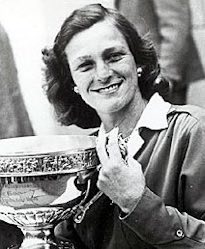 Mildred "Babe" Didrikson Zaharias
Athletics
1911
Texas
1976
Mildred "Babe" Didrikson Zaharias
Athletics
1911
Texas
1976

Mildred "Babe" Didrikson Zaharias
One of the century’s premier athletes. Zaharias won track and field gold medals at the 1932 Olympics. She later became a golf champion and founded the Ladies Professional Golf Association. Zaharias inspired generations of women to develop athletic skills.
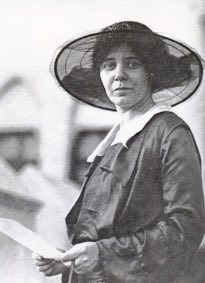 Alice Paul
Humanities
1885
1979
Alice Paul
Humanities
1885
1979

Alice Paul
Social reformer. Reared a Quaker, Paul found most of the women’s suffrage movement too slow and passive. After earning a Ph.D. from the University of Pennsylvania in 1912, she campaigned aggressively for women’s suffrage, using picketing and demonstrations to draw attention to the issue. Paul founded the women’s party, which demanded passage of the Equal Rights Amendment.
